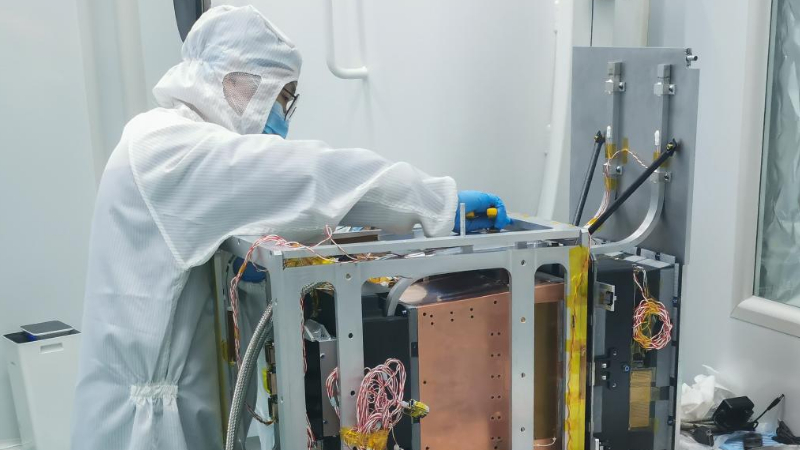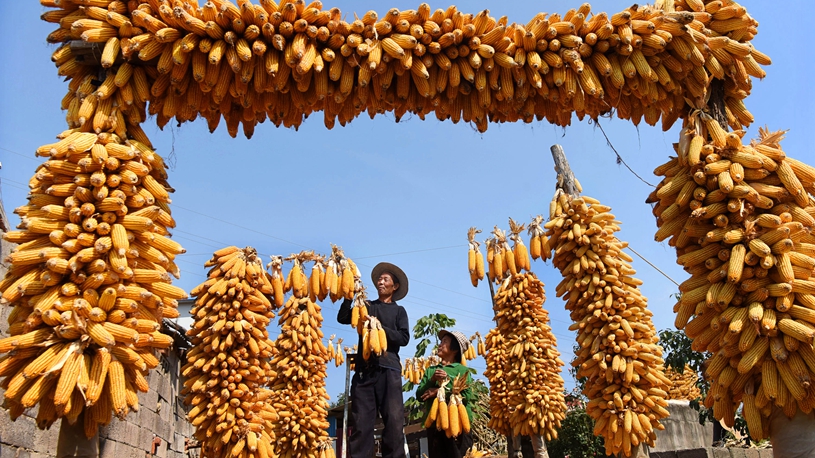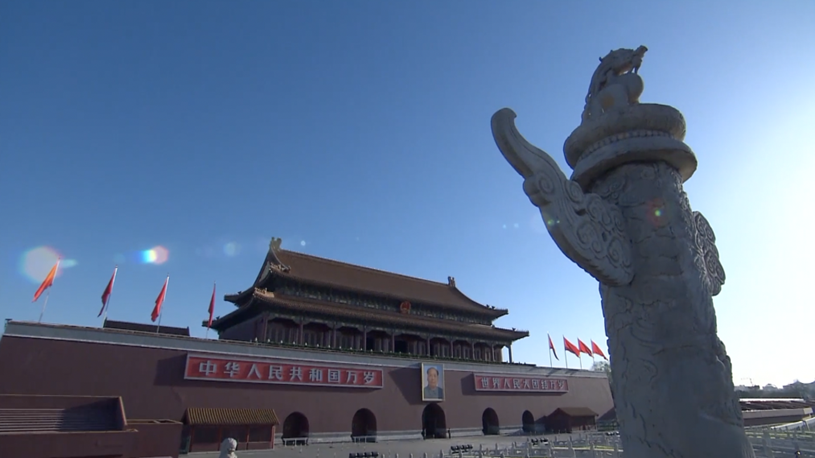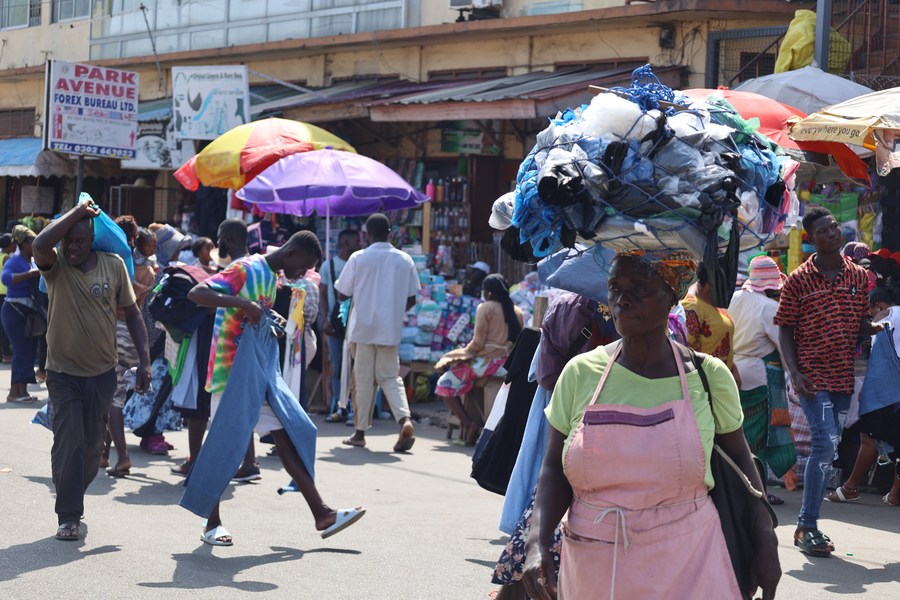
People walk past a market in Accra, Ghana, on July 14, 2022. (Photo by Seth/Xinhua)
In Ghana, consumers and traders expressed worry about the hikes in the prices of food and related products amid soaring inflation.
ACCRA, Oct. 15 (Xinhua) -- Consumers and traders in Ghana on Friday expressed worry about the hikes in the prices of food and related products amid soaring inflation.
According to a World Bank report earlier in the month, Ghana ranked first as the country with the highest food prices in Sub-Saharan Africa this year.
Agnes Baidoo, a Ghanaian resident of Tema city and mother of three, told Xinhua the increasing food prices were taking a heavy toll on the finances of her family.
"The frequent increase in the prices of foodstuffs is affecting my family. Because my income is relatively stable, I am unable to purchase the same quantity of food that I used to purchase to feed my family. Because of this, I have to either borrow to feed my family or cut down on the quantity of food," she said.
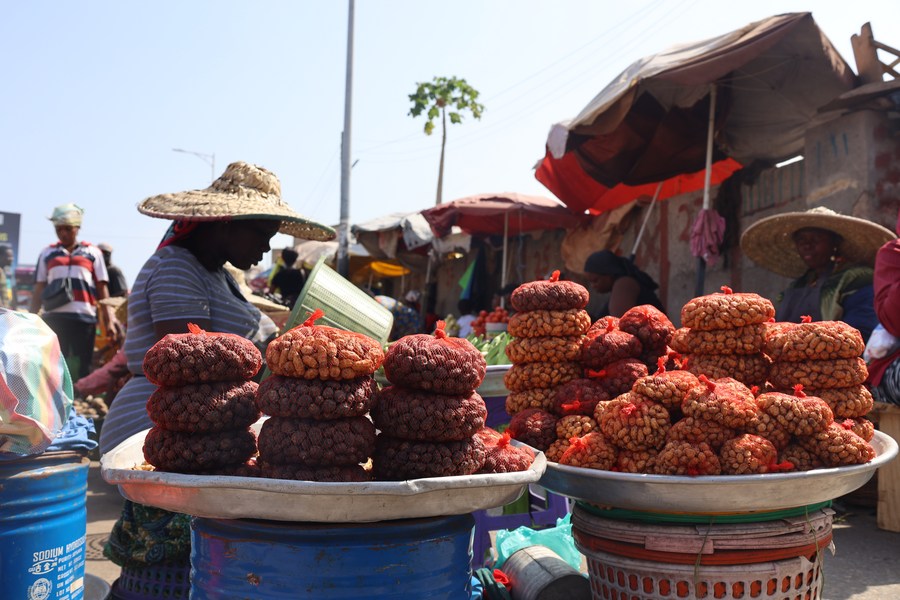 Vendors sell products at a market in Accra, Ghana, on July 14, 2022. (Photo by Seth/Xinhua)
Vendors sell products at a market in Accra, Ghana, on July 14, 2022. (Photo by Seth/Xinhua)
Baidoo called for the government to take stronger measures to come up with a policy to address the increasing food prices as a matter of urgency to protect consumers across the country.
Anthony Eshun, a 53-year-old imported-rice retailer, told Xinhua that the rampant increase by the traders was a result of the depreciating Ghanaian currency, adding that the food price hikes have resulted in low patronage by consumers as prices have more than doubled within a short time.
"I am worried as a trader about the increasing prices of my products. This is because many consumers come here and ask about prices, but many of them turned away because they cannot afford the products," Eshun said.
The Ghana Statistical Service said Wednesday that the West African country's annual consumer inflation maintained an upward surge in September with an increase of 37.2 percent.
On Oct. 6, the Bank of Ghana, the central bank, announced a 250 basis points increase in the benchmark policy rate to 24.5 percent to arrest the fast depreciation of the local currency. ■



